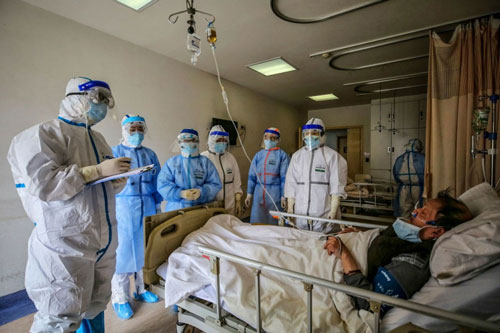A man in the United States has caught Covid twice, with the second infection becoming far more dangerous than the first, doctors report.
The 25-year-old needed hospital treatment after his lungs could not get enough oxygen into his body.
Reinfections remain rare and he has now recovered.
But the study in the Lancet Infectious Diseases raises questions about how much immunity can be built up to the virus.
The man from Nevada had no known health problems or immune defects that would make him particularly vulnerable to Covid.
What happened when
• 25 March – First wave of symptoms, including sore throat, cough, headache, nausea and diarrhoea
• 18 April – He tests positive for the first time
• 27 April – Initial symptoms fully resolve
• 9 and 26 May – He tests negative for the virus on two occasions
• 28 May – He develops symptoms again, this time including fever, headache, dizziness, cough, nausea and diarrhoea
• 5 June – He tests positive for the second time, and is hypoxic (low blood oxygen) with shortness of breath
Scientists say the patient caught coronavirus twice, rather than the original infection becoming dormant and then bouncing back. A comparison of the genetic codes of the virus taken during each bout of symptoms showed they were too distinct to be caused by the same infection.
“Our findings signal that a previous infection may not necessarily protect against future infection,” said Dr Mark Pandori, from the University of Nevada.
“The possibility of reinfections could have significant implications for our understanding of Covid-19 immunity.”
He said even people who have recovered should continue to follow guidelines around social distancing, face masks and hand washing.
Scientists are still grappling with the thorny issue of coronavirus and immunity.
Does everyone become immune? Even people with very mild symptoms? How long does any protection last?
These are important questions for understanding how the virus will affect us long-term and may have implications for vaccines and ideas such as herd immunity.
So far, reinfection seems to be rare – there have been only a few examples out of more than 37 million confirmed cases.










